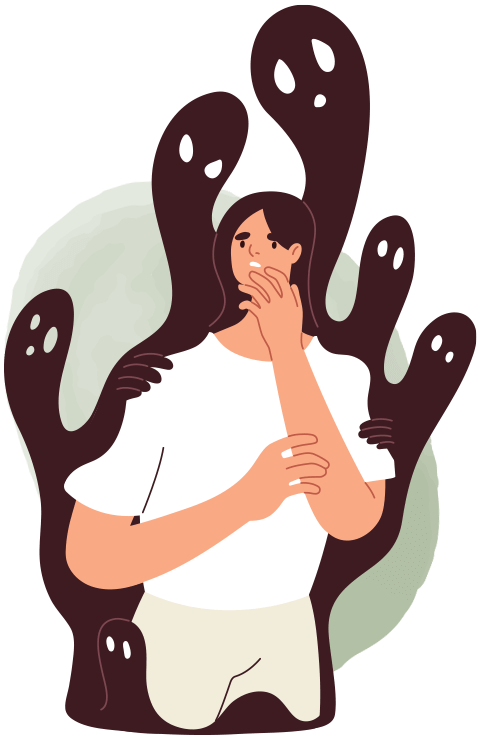Therapy for OCD
Support Line
Online Schedule

Therapy for OCD
Fear of germs or the urge to organize objects in a precise order is a common motif in OCD. Symptoms usually occur in stages and develop over time.
Obsessions can be classified as, symmetry obsession, forbidden thoughts or actions, cleaning & contamination, and hoarding. Among these symmetries, obsession is the most common.
Symptoms of OCD may include Fixated thought, Intrusive and Obsessive Thoughts, Emergence to act, Restlessness, Being in a never-ending cycle, Fear of loss of control, Reassurance, and double-checking
Our Approach
We offer evidence-based psychiatry and psychology services for the treatment of mental health disorders with an integrative and personalized approach.
Our Providers
A team of compassionate and competent clinicians, researchers, academicians, technology experts, and care associates ensure patient-centric comprehensive mental healthcare.
Our Space
Thoughtfully designed Safe, confidential, and non-judgmental therapeutic space.


Therapy for OCD
CBT
CBT comprises a variety of therapy strategies, including cognitive restructuring, that is extremely effective for treating obsessive-compulsive disorder (OCD).
OCD treatment is usually brief, although it has long-term therapeutic advantages. The length of CBT is usually determined by the severity of an individual’s OCD symptoms.
Aversion Therapy
Aversion treatment is a type of psychotherapy in which a patient is taught to associate an unwanted behavior pattern with an unpleasant stimulus to lessen or avoid it.
Systematic desensitization
It is well-known behavior therapy. It usually entails remaining deeply relaxed while visualizing a series of increasingly terrifying sequences in which the patient is confronted with various events or situations.
ERP
Exposure in ERP refers to being exposed to thoughts, images, things, and situations that make you uncomfortable and/or activate your obsessions. The Response Prevention component of ERP refers to deciding not to engage in a compulsive behavior once anxiety or obsessions have been “activated.” You’ll practice everything with the guidance of a therapist at first, but with time, you’ll learn to do your ERP exercises to help regulate your symptoms.
Get better with psychotherapy








